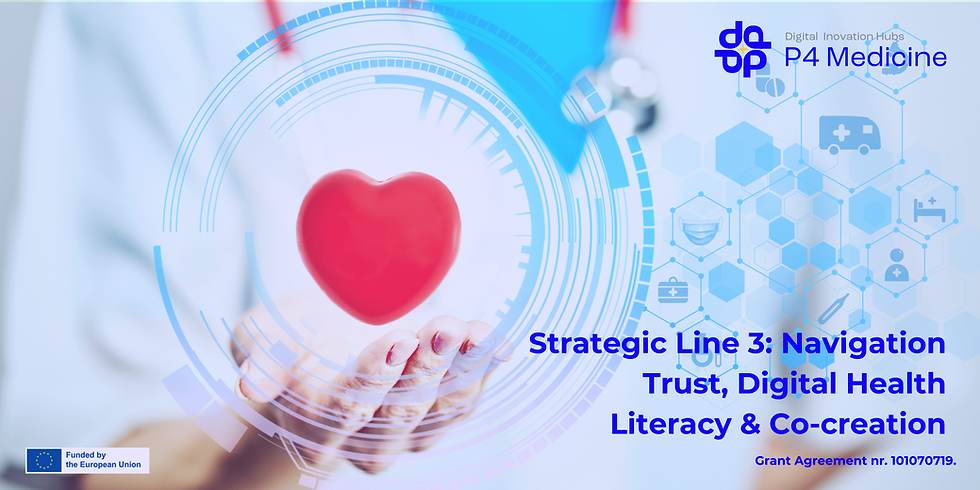Strategic Line 2: Access to Health Data
- adelabernad
- Apr 23, 2024
- 2 min read
SL2 highlights the importance of harnessing the potential of health data for the integration of digital technologies in healthcare and its impact on P4 Medicine. Despite the vast amount of health data available, a significant proportion remains unused, hampering proactive health initiatives. The European Commission's proposal for the European Health Data Space (EHDS) aims to establish a common framework for the exchange of health data across Europe to address challenges related to data governance, accessibility, interoperability, security, trust and literacy. However, the challenges go beyond the regulatory aspects and include issues such as different levels of infrastructure readiness, digitisation and use of electronic health records across Member States.
To unlock the potential of EHDS, stakeholders need to recognise its value, ensure legal clarity and promote accessibility. European Digital Innovation Hubs (EDIHs) can play a crucial role by promoting a multi-stakeholder approach and fostering a data-driven culture in European health innovation ecosystems. Collaboration facilitated by EDIHs can support regional stakeholders, in particular start-ups and SMEs, to make effective use of the EHDS.

To this end, the JAP outlines two flagship initiatives to capitalise on the role of EDIHs in facilitating the successful implementation of the EHDS in the different European regions.
Flagship Initiative 3: Interconnected EDIHs acting as regional contact points to provide support for the EHDS
This flagship initiative underlines the importance of engaging stakeholders from the quadruple helix and fostering partnership and collaboration for data accessibility in the context of EHDS implementation. To this end, EDIHs will act as regional hubs to tailor EHDS implementation strategies to fit regional needs and support regional stakeholders, in particular SMEs and startups, in accessing EHDS opportunities to facilitate the use of health data to provide innovative solutions to health systems. Various activities will be carried out to achieve this goal, including awareness campaigns related to EHDS deployment, setting up online platforms, providing personalized advice, fostering partnerships, conducting needs assessments, and supporting pilot projects. Collaboration with leading Electronic Health Records adopters like Finland, Estonia and Denmark, as well as projects and organisations such as TEHDAS, EDAH or EIT health will enhance these efforts.
Flagship 4: EDIHs for Health Data literacy: Education & Training
This flagship initiative aims to provide training on health data literacy, including aspects such as data collection, management, technology and security protocols. As EDIHs work with health data experts and regulators to ensure compliance with EU regulations, workshops will be designed for SMEs, regulators and healthcare institutions on practical aspects, regulatory compliance and patient data security. Training will also be provided for EDIH staff, incorporating best practice and working with pioneering organisations such as Findata. SMEs will be the main beneficiaries, and pilot training will be delivered to various SMEs, with feedback collected and analysed to assess effectiveness and alignment with real-world challenges.



Comments